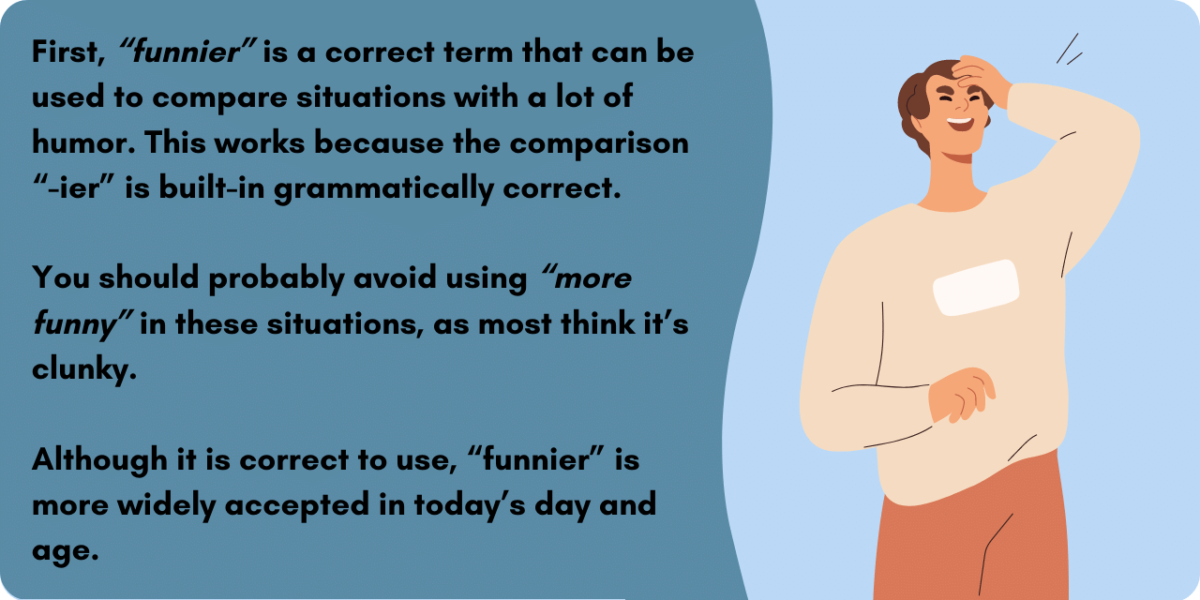Is “Funnier” A Word?
Comparative diction in English can be a very challenging thing. Some words have comparatives built-in, while others need to be paired with “more” or “less” to be correct. Funny, however, has its own unique rules and can change depending on how you are using it.
In short, “funnier” is technically a word; however it has its specific usage rules and cannot be substituted in for “more/less funny.” to clear things up, “funnier” is a word that can be used in specific comparative situations. In contrast “less funny” is more apt for talking about situations that lack humor. In addition, “more funny” is also a correct term technically. However, it can be clunky and has lost popularity over the years.

How To Use “Funnier” And “Less Funny”
First, “funnier” is a correct term that can be used to compare situations with a lot of humor. This works because the comparison “-ier” is built-in grammatically correct. For example, you could use this word in a sentence like, “I think that Mark’s presentation was funnier than Dan’s.”
You should probably avoid using “more funny” in these situations, as most think it’s clunky. Although it is correct to use, “funnier” is more widely accepted in today’s day and age.
Lastly, you should use “less funny” to describe situations that aren’t funny. This works best because there isn’t a built-in comparative to say “less funny,” and it simply sounds better in the end. For instance, you could say something along the lines of, “I think that Dan’s presentation was a lot less funny than Mark’s.”
Using “More” And “Less” With Funny
You can technically use “more” and “less” with funny, and in some cases, it is even suggested. However, there are some situations where “more” and “less” become very important. If you find something moderately funny or feel apathetic about it, you can use “more/less funny” to describe your feelings.
For instance, you could say, “I found the book more or less funny,” or “I found it more funny than not.” Statements such as these allow your reader to know that you thought something was mildly funny.
Examples Of Using “Funnier” And “Less Funny”
Here are some basic examples of correctly using “funnier” and “less funny.”
- I didn’t enjoy my night. I was expecting the board game to be more fun.
- After careful deliberation, we think that Ramon’s presentation was funnier than everyone else’s.
- That amusement park was a lot less fun than I had hoped for.
Related: A lesson on “Fewer” and “Less”
Want to sharpen your business writing skills? Discover our acclaimed online courses at syntaxtraining.com Whether you want to learn about taking taking meeting notes, become a master proofreader, master punctuation or tune-up your business writing skills, our courses are here to help you.






